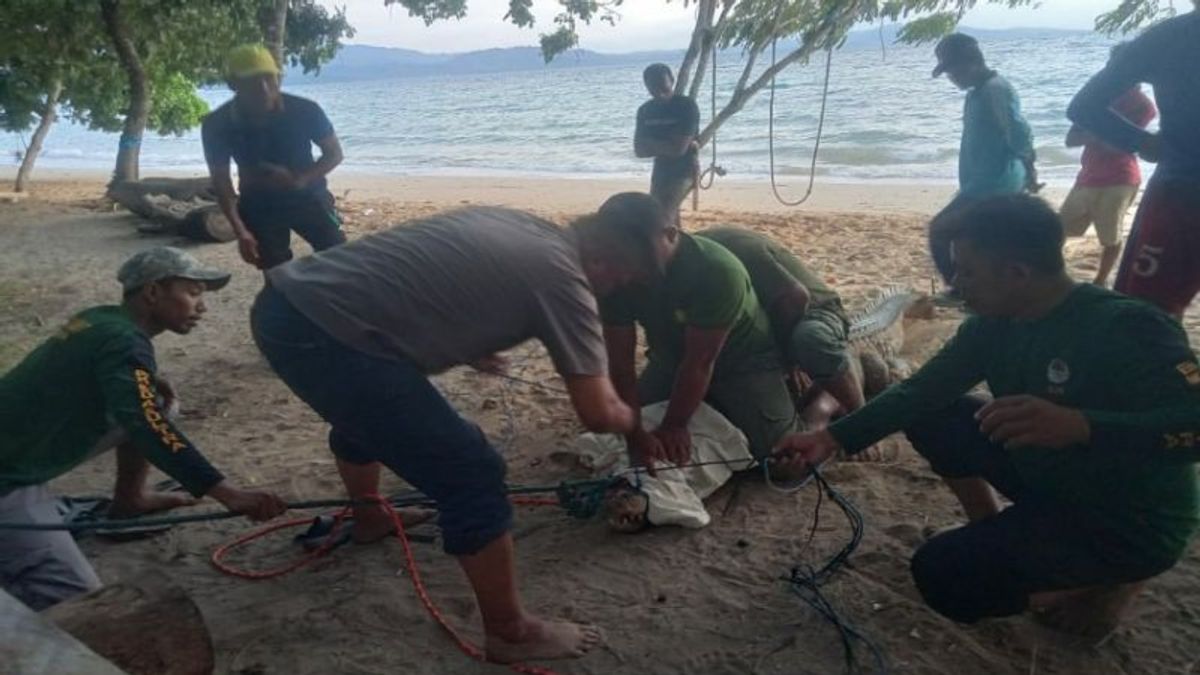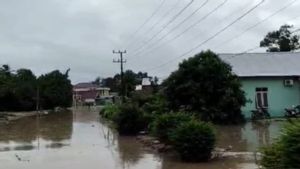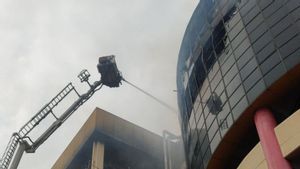SULTRA - An estuarine crocodile entered the sero or fishing trap belonging to fishermen in Langkasulu Village, South Konawe Regency, Southeast Sulawesi (Sultra). The Natural Resources Conservation Agency (BKSDA) officers evacuated it.
Head of the Conservation Section Region II BKSDA Sultra Laode Kaida said the evacuation of the crocodile, which is 2.5 meters long and 40 cm wide, was carried out after receiving reports from residents.
"The evacuation of the Southeast Sulawesi BKSDA Team in an estuarine crocodile in Lapanggaulu Village, East Kolono District followed up on public reports on behalf of Maldin and Jumain," he said in Kendari, Southeast Sulawesi, Friday, January 6, confiscated by Antara.
He conveyed that his party who received the report immediately rushed to the location, then released the wild animals from the community's fish traps in the waters of Kolono Bay.
After successfully removing the estuarine crocodile, continued Kaida, his party then evacuated the animal with a high aggressive level to the Southeast Sulawesi BKSDA Office.
He added that the crocodile will be released into its habitat in the captivity area belonging to the Rawa Aopa Watumohai National Park (TN-RAW) in the South Konawe Regency area.
"After we coordinate with the Head of the Rawa Aopa Watumohai National Park Office, this crocodile is recommended to be released into its habitat in Rawa Aopa National Park. The rescue team will be assisted by forestry police and Forest Ecosystem Control at the TN RAW Center," he said.
Kaida appealed to the public to be more careful when carrying out activities, especially in areas that are the habitat of these animals. Moreover, estuarine crocodiles are high aggressive animals.
Previously, the Head of the Southeast Sulawesi BKSDA, Sakrianto Djawie, said that currently, crocodile conflicts with humans have increased due to crocodile habitat damage.
According to him, the conversion of land in the river estuary area into residential areas or ponds has narrowed the crocodile's habitat, so they have difficulty finding prey.
Such conditions force crocodiles out of their habitat to search for prey and sometimes into residential areas.
"The forests around the mouth of the river, which are inhabited by estuarine crocodile feed, are gone, so there is no longer the availability of feed for estuarine crocodiles," said Sakrianto.
The English, Chinese, Japanese, Arabic, and French versions are automatically generated by the AI. So there may still be inaccuracies in translating, please always see Indonesian as our main language. (system supported by DigitalSiber.id)













